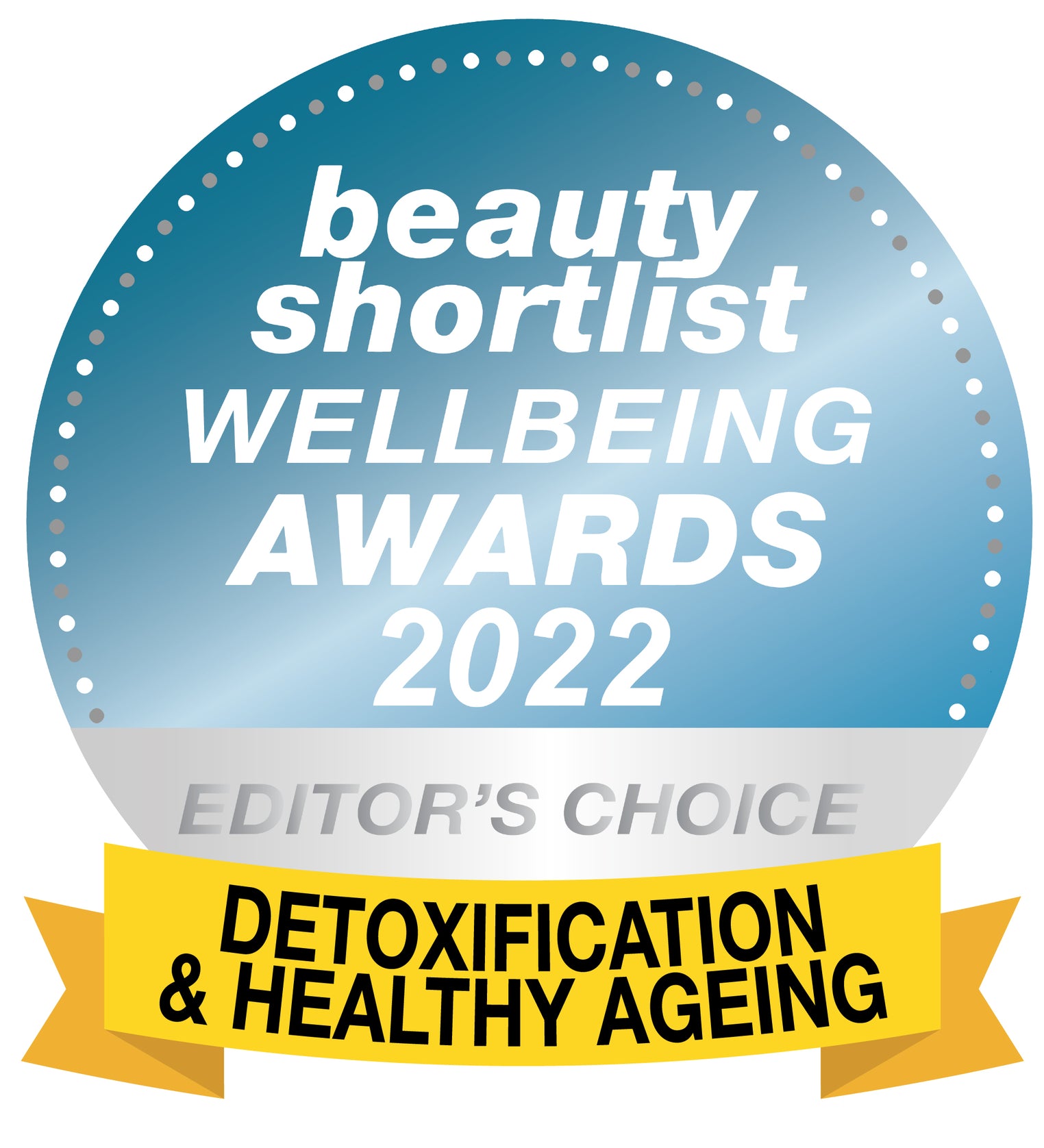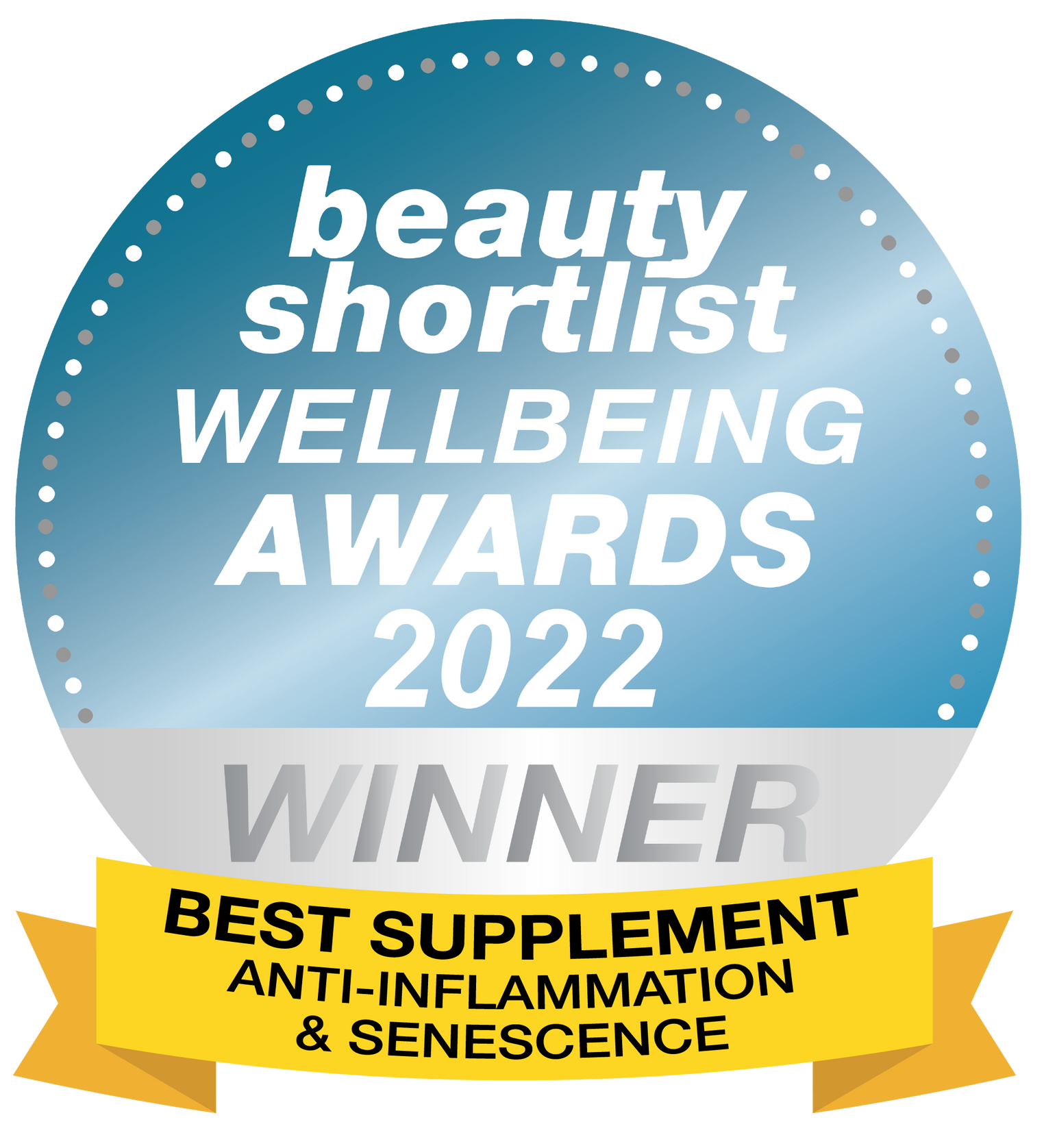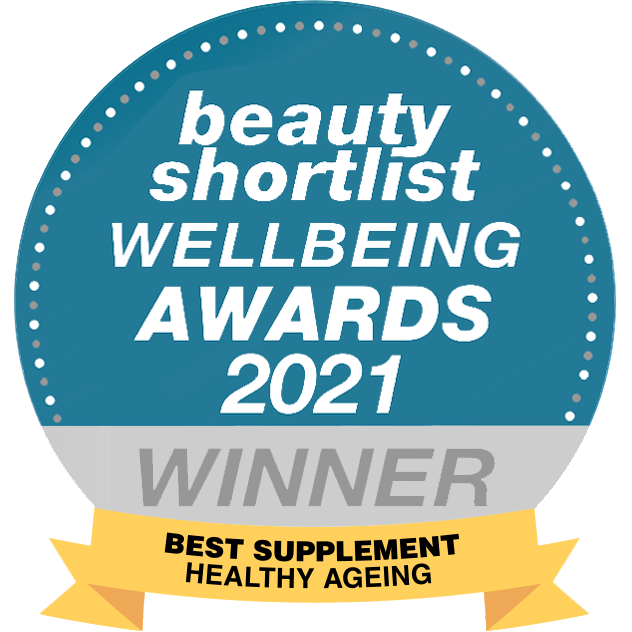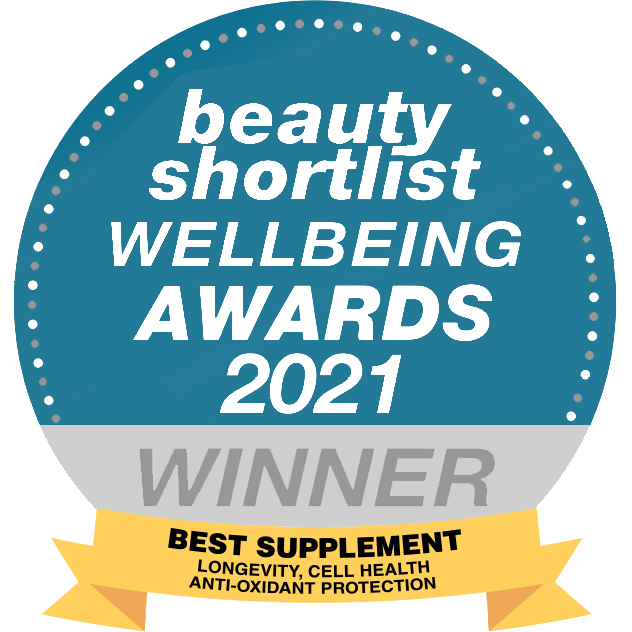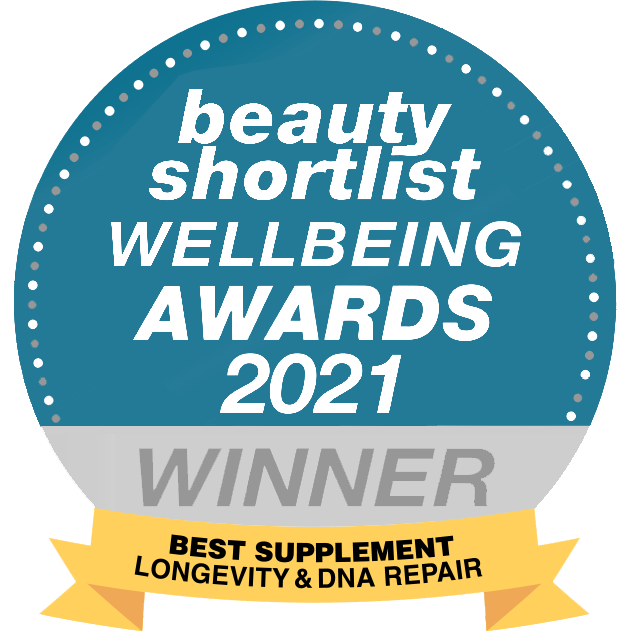You may be gazing out of your window this very moment in time. Staring across your garden or park at the luscious trees or plants.
Do you know we share something in common with them?
The answer is polyamines and polyamine synthesis.
Funny enough, the knowledge we have of polyamines are from plants. Our goal, like those majestic trees, is to live a long and healthy life.

In this article, we will investigate one of those polyamines, namely spermidine, the role it plays in autophagy and its use as an anti-ageing supplement.
But more importantly, we’ll also cover how spermidine can benefit you!
“This oak tree and me, we’re made of the same stuff.”
— CARL SAGAN, ASTRONOMER AND SCIENTIST
WHAT ARE POLYAMINES?
So what are polyamines (PA)? And why are they so important in the role of ageing? Polyamines are present everywhere in living cells and tissues. They are known as biogenic amines which are compounds with more than two amino groups. Polyamines occur naturally in our bodies and unfortunately, as we age these levels decrease.
Polyamines play a role in:
- Cell division and differentiation
- Cell proliferation
- DNA and protein synthesis
- Homeostasis (the body’s ability to adjust and maintain a stable state)
- And gene expression (the code of a gene used to direct protein synthesis)
Looking at all the functions of polyamines, we can see why we should be concerned if ageing causes our levels to drop. These essential compounds seem to be very involved in the processes of cell growth and maintaining genetic stability. They, therefore, help slow the process of growing older and improve our lifespan and our health span (our quality of life). The drop in our levels of polyamines is therefore denying us some rich therapeutic benefits.
The main PAs found in mammalian cells and even plants are spermidine, spermine, and putrescine. The polyamine which we have put in the spotlight isspermidine.
WHAT IS SPERMIDINE?

The name spermidine is rather suggestive because it was first isolated from semen, which explains its name. Its origin stems from scientist Von Leeuwenhoek, the father of microscopy. In 1678, he reported to the Royal Society that part of his sperm specimens had crystallized. Only much later in the 1920s were these crystals termed as spermine and the reason for them was to protect the DNA of the semen. The actualchemical structure was revealed along with another molecule calledspermidine.
When we are young and growing, after pregnancy and even after exercise the levels of our spermidine increase. There is even a notable increase in spermidine in those that have a faster metabolism.
When we approach the age of 60 there is a decline in our levels of spermidine. This decrease is sometimes noticeable as muscle wastage, the onset of hair loss, loose skin and wrinkles.
Our levels of spermidine in our bodies are influenced by an external supply, which is the oral ingestion of spermidine food sources. We ingest around two-thirds of our spermidine through our food. The other one third is through intestinal microbiota (gut microflora) that synthesizes polyamines.
IS SPERMIDINE ANTI-AGEING?
As mentioned before, our spermidine levels drop as we age, which is not good news to us as we may lose those anti-ageing and health benefits. Revolutionary research and interventions with spermidine are ongoing and indicate that it may delay ageing and play a role in protecting our bodies from age-associated diseases.
Spermidine's role in age-related diseases
The natural process of growing older does not necessarily lead to cancer, however, it is noted that the incidence of cancer increases more rapidly at the beginning of our midlife and thereafter. Cancer can be considered an age-related disease.
Ongoingstudies reveal that spermidine may play a role in chemoprevention and clinical therapeutics of cancers.Why? Because spermidine activates autophagy, a process that removes defective cells in our bodies. This could really amount to life-changing alternatives for cancer sufferers.
For even the healthy elderly, the brain also undergoes changes. For example, we might forget familiar names or words and multitasking may become a little more difficult. Our memory or thinking skills are slightly affected.Studies involving spermidine in the treatment of neurodegenerative diseases like Alzheimer's disease (AD) and Parkinson's disease (PD) are still ongoing. Currently, there is no cure for both these heartbreaking diseases and perhaps with further research in the role spermidine plays in mitophagy and the removal of damaged mitochondria and cellular homeostasis, a new treatment option could be offered to those inflicted.
As we age the most common heart problems are the changes to our arteries and blood vessels. Often these stiffen and force the heart muscles to work harder in order to pump blood to the rest of the body.Research on increasing spermidine to suppress age-related cardiovascular issues so that we can increase our longevity has been said to help by about 10%.
How can spermidine help us as we age?
We would like to inform you of the anti-ageing properties of spermidine which may solve some of your common day to day problems associated with age. Over time our body’s undergo many changes. Factors such as menopause for older women, hormonal changes, and age-related health issues are all part and parcel of ageing. Even our bodies ability to burn calories slows down with age and along with decreased amounts of physical activity causes us to gain weight.
I’m sure we can all relate to some time or other experiencing issues with our hair, our weight and our need to live longer. You are probably nodding your head in agreement, so let’s see how supplementing with spermidine is anti-ageing and could help us stay more youthful.
Is spermidine good for hair?
Most of us invest a lot of time and money in our crowning glory, our hair. Yet as we age we notice our hair’s texture and colour changes. The dreaded thinning of hair associated with age leaves us feeling despondent and even depressed. For us to really understand the hair loss problem, we need to look at the hair cycle from the time it grows to the time it falls out.
Now every hair passes through 3 phases and every hair goes through these phases at different times. This explains why we don’t have all our hair falling out simultaneously. The phases of hair growth are the growth phase (anagen), the intermediate phase (catagen) and the resting phase (telogen). Unfortunately, as we grow older our hair has a shorter life cycle and the new hair strand is often finer.
Studies have shown that polyamine spermidine can prolong your anagen phase, which means that the longer you can keep a hair in it’s growing phase, the longer the hair grows. So instead of shedding the average 80 to 100 hairs, you could be holding on to around 20 of those hairs a day!
Spermidine has also been shown to play a role in the production ofmelanocytes which is involved in the hair pigmentation process. Could spermidine be a contender for grey hair reversal? If all else it sounds like spermidine could help you have a thicker, healthier head of hair.
I am sure this sparks most of our curiosity as to how we can achieve this. So keep on reading!
HOW AUTOPHAGY WORKS?
“Life is maintained by a delicate balance between continuous synthesis and degradation. I found that degradation is just as important as synthesis for the maintenance of dynamic biological systems like the body ”
— YOSHINORI OHSUMI, NOBEL PRIZE WINNER 2016.
Autophagy,calorie restriction,intermittent fastingare all terms that have become very popular. They have become synonymous with battling the effects of ageing, in other words prolonging your life. Before we can delve into the more groundbreaking research, we need to understand exactly what “autophagy” is. This will aid in comprehending the significance of spermidine and its ability to mimic fasting.
Let’s look at the word autophagy which gives us a clue to its meaning. Its origin is from the Greek words “auto” meaning self and “phagy” meaning to eat. Does this translate to “self-eating”? In a way it does, as autophagy is the beneficial process where our bodies consume and recycle their own tissue.
As we age the ability of many of our body's cells to activate autophagy slows down. We could use the analogy of the refuse service not collecting the trash and our cellular waste accumulating where it impacts our health negatively. The benefits of autophagy begin with its anti-ageing function in creating younger cells.
Repaired cells work better and more like younger cells. Therefore, when autophagy is running well we may have a younger chronological age and an older biological age. We will investigate this more in a future blog post on chronological age and biological age.
On the cellular level, autophagy:
- Guards against neurodegeneration and encourages the growth of brain and nerve cells.
- Prompts regeneration and healthy cells.
- Supports the growth of heart cells and protects against heart disease.
- Prevents necrosis (the death of cells) that happens due to disease, injury, or irregular blood supply.
- Recycles residual proteins and damaged cells.
How do you trigger autophagy?

- Through fasting —The fastest way to trigger and observe autophagy is during starvation which is where restricting one's calories comes into play. You may have heard of intermittent fasting (IF), time-restricted eating (TRE), alternate-day fasting (ADF) and other specialized sub-forms thereof.
- The Ketogenic diet — A diet of high fat, low carbs making the body shift metabolic pathways to use fat for fuel instead of glucose sourced from carbs.
- Exercise — By exercising we can induce positive stress which breaks down tissue. The broken tissue is repaired, growing back more robust. Research reveals that exercise can induce autophagy in organs like muscle, liver, pancreas, and adipose tissue involved in metabolic regulation.
AUTOPHAGY WITHOUT FASTING
Sticking to a caloric restricted diet for extended amounts of time is not advisable for pregnant, breastfeeding and the very young. Those that are already underweight, that struggle with weight gain, as well as suffering from diabetes, may put themselves at risk with fasting. It is also not encouraged with individuals that may be too motivated in their approach and embark on food abstinence which could lead to malnutrition. And last but not least, fasting takes self-discipline. The Ketogenic diet involves some meal planning and strenuous exercise takes time and energy. These may just prove too challenging for some of us.
So what if there’s a way we can bypass some of these obligations that are required to induce autophagy and reap the benefits?
Research suggests that by increasing our intake of spermidine via foods or anti-ageing supplements we could still acquire the healthful benefits of autophagy.
Why? Because Spermidine is what is termed as a “caloric restriction mimetic.”
You could say it tricks the body in inducing autophagy. When we are young our spermidine levels are quite high and autophagy is regularly activated by these spermidine levels. We also know that spermidine levels drop with age, so how can we increase our intake of spermidine so that we can enjoy the anti-ageing health benefits of autophagy?
WHERE CAN SPERMIDINE BE FOUND?
The answer lies in eating specific foods. On the other hand, it could prove challenging reaching that daily intake of spermidine and calculating these amounts. The good news is that spermidine is available as capsules and supplements resolving the amount of guesswork. We can now induce autophagy and reduce the undesirable effects of ageing.
Yes, why not try ourSpermidine supplement.

There are many foods that contain spermidine which is mostly plant-based namely, miso, mushrooms, broccoli, lentils, potatoes, cauliflower, legumes, mango and peas. Fermented soybean/tofu called natto, is a good source of polyamines, which makes it rich in spermidine, but it is rather an acquired taste.
Below is a list of foods is said to contain more than three-digit milligram content per kilogram of spermidine which is relatively high:
- Wheat germ 243mg
- Dried soybeans 207mg
- Cheddar cheese (1 year matured) 199mg
- Pumpkin seeds 104mg
Wheatgerm with spermidine
As seen above wheat germ contains a relatively high amount of spermidine. Our supplementSpermidine issourced from concentrated Japanese wheat germ extract.
When we look at the wheat plant it is like a long grass with a spike on top. That spiking part houses what is called the wheat berries. The bran, endosperm and germ make up the wheat berry. The germ is what will sprout into a new plant. It is the healthiest and most nutritional part and it is known as the powerhouse. Wheat germ is known for its dietary fiber and minerals that boost immunity.
Cheese with spermidine
For those that love a good cheese platter, you will be ecstatic as spermidine is found in cheese which is cured for at least 6 months. Cheese connoisseurs will tell you to look for cheeses with a hard texture, a sharp taste or a pungent cheesy smell.Cheddar, Gouda, Gruyere, Manchego,Parmesan, andBlue Cheese all fall in this category.
But be aware that opting to get your daily intake with cheese, will probably add lots of extra calories. Harder cheeses often contain more fat and saturated fat. As with all things moderation is key.
IS SPERMIDINE AS A SUPPLEMENT SAFE/GRAS?
We are reminded that spermidine is an abundant polyamine found in a majority of human tissues. Due to ageing, the levels of this polyamine does however decrease.Research data indicates that using a spermidine-rich plant extract in spermidine supplementation is generally recognized as safe (GRAS) and well-tolerated amongst research subjects.
You will be glad to hear that Youth & Earth’sSpermidineis vegetarian and vegan friendly. Because it is wheat germ based it is not suitable for those that have a wheat allergy. The good news is that the levels of gluten present in one supplement capsule is significantly less than half an average slice of bread. Like all supplements, one should always consult a health practitioner before embarking on any treatment.
IN CONCLUSION
We know polyamine spermidine exists naturally in our bodies and as we age our levels drop. As our life span grows, we need to gain knowledge on how to increase these anti-ageing levels of spermidine. Research such as that of Yoshinori Ohsumi, paves the way to a better understanding of autophagy and yet he too mentions that it is still in its infancy.
Ongoing studies reveal that autophagy may restore youthful health as we grow older. We see how spermidine like food deprivation activates autophagy. We can influence our levels of spermidine with the intake of natural foods and the synthesis of gut microflora. There are many food sources providing us with spermidine although the exact amounts of this polyamine may vary. OurSpermidine supplementpresents us with an opportunity to gain more control over the required dosage for those anti-ageing results.
If you have enjoyed these incredible facts about polyamines, autophagy and spermidine as a possible supplement, please read our blogs for more informative content on more anti-ageing supplements.
Why not start reaping those anti-ageing benefits for yourself with ourSpermidine.
The content of this article is for informational purposes only.
It’s not intended to be a substitute for professional medical advice, diagnosis, or treatment. Always seek the advice of your physician or health provider before starting a new health regime or program.
Do not ignore medical advice or delay seeking it because of something you’ve read on this site or any Youth & Earth product.





















